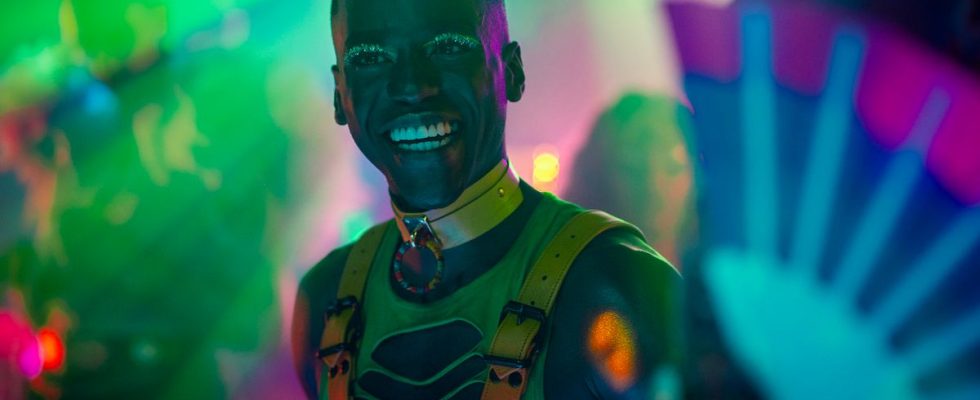It’s time to say goodbye to our dearest gang from Mordale High School. “Sex Education”, the essential teenage series from Netflix, is permanently closing its sex therapy practice after this fourth and final season broadcast from this Thursday. But before putting an end to this chapter, it is time to give back to Otis what is Otis’s and to analyze the impact of this teen drama on the world of series. We can say that there was a before and after “Sex Education”. She helped pave the way for a new type of adolescent choral series dedicated to educating their young audience on issues of consent, violence against women, gender, sexual orientation, etc.
Eric Effiong [Ncuti Gatwa], one of the best-written characters in contemporary fiction, has established himself as an archetype that we find in other guises in several series of the genre. Otis Milburn’s best friend [Asa Butterfield], he comes from a religious family that is half Ghanaian, half Nigerian, and he fully embraces his homosexuality. It’s impossible not to think of Eric in front of Chester (Justice Smith), the flamboyant queer of “Genera+ion” (HBO), as exuberant as he is eccentric, or in front of Darren (James Majoos) in “Hartley, hearts on edge” (2022 ). “Grand Army” (2020), “Heartstopper” (2022), “Gossip Girl, new generation” (2021)… They all came out of the same mold, putting high school students from the LGBT community (lesbian, gay, bi, trans) who are awakening to sexuality.
“We can no longer think about sexuality in the same way”
“I have the impression that there are previous teen shows which have initiated a shift by injecting the question of consent or gender identities, but “Sex Education” is the one which has received the most media coverage, observes Hélène Breda , lecturer in information and communication sciences at Sorbonne Paris-Nord University. I’m thinking of the Canadian series “Degrassi: Next Class” which dates from 2016. It is very didactic on consent, rape culture, bisexuality, non-binarity. Netflix took this new feminist and queer value system and made it a brand image. »
All these works are also the fruit of an era. We could say that the MeToo wave has flooded the series with the concerns of younger generations. We remember the 2010 version of teen shows where characters like Chuck Bass in “Gossip Girl” attempt to rape girls without it particularly raising eyebrows. Two decades earlier, “Beverly Hills 90210”, Darren Star’s cult series, created controversy when Brenda lost her virginity in Dylan’s arms. Female sexuality was a non-subject, homosexuality barely touched upon and transidentity completely taboo.
From March 2017, even before the MeToo explosion, “13 Reasons Why” opened the discussion on rape and harassment. “It’s a generational phenomenon which is positioned at the crossroads of a slightly pop online feminism and a MeToo era. At the turn of the 2010s, we saw lots of things happening on digital media, social networks, blogs, Tumblrs, etc… On street harassment, for example, the Tumblr Paye ta shnek date of 2013, observes Hélène Breda. There was a generational effect. We can no longer think about sexuality in the same way.” And this has had repercussions on fiction, particularly teen fiction. It must be said that adolescent series, which deal with the transition to adulthood, lend themselves rather well to this type of subject.
A school case
As its title indicates, “Sex Education” puts sexualities at the heart of its plot, becoming a true edutainment product – a contraction of education and entertainment –. She carries strong feminist messages through her character Jean Milburn (Gillian Anderson), Otis’ mother and incidentally a professional sexologist. From season 2, the latter reveals the existence of asexuality to a student who is worried about not feeling the desire to have sex. “This scene is very educational, lots of people reacted by saying: ‘I would have loved to have seen this as a teenager’”, points out Hélène Breda. In addition to doing educational work, the series offers new representations that have long been absent from the small screen.
If “Sex Education” did not initiate, strictly speaking, the revolution in teen shows, it embraced it with intelligence, participating in creating new character models. “It’s a textbook or exemplary series that will go down in the history of series,” confirms the researcher. But, as they say, all good things must come to an end.

